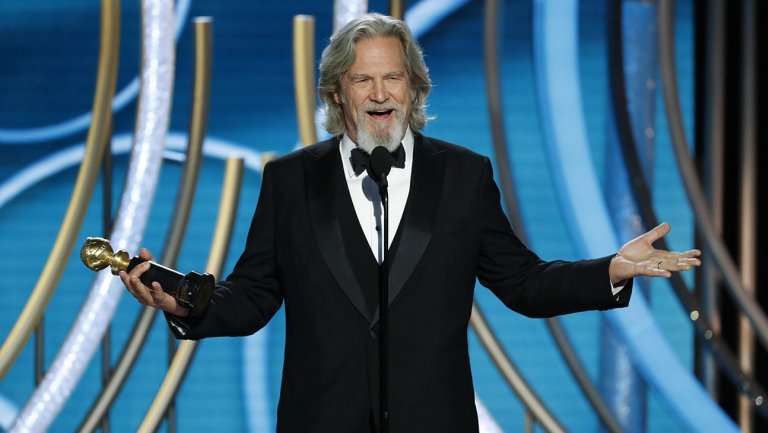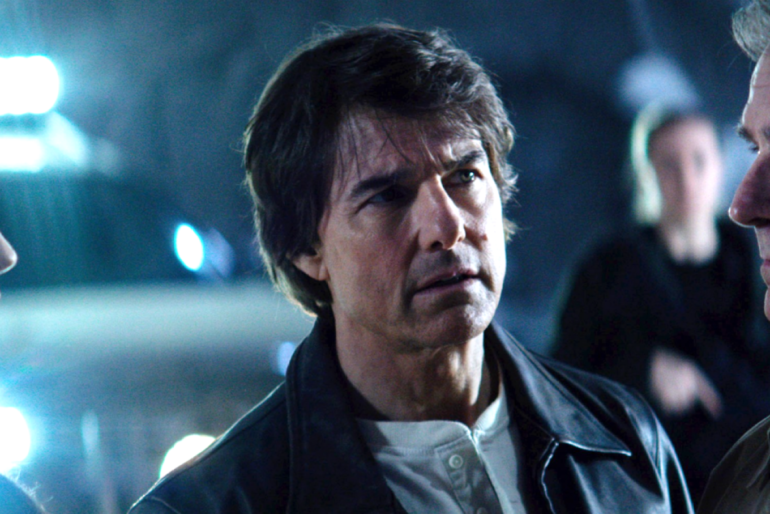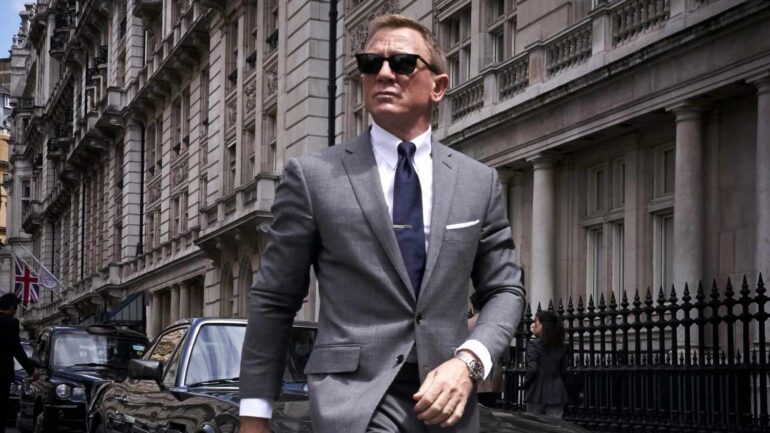It was a wonderful moment for one of the best and most frequently overlooked shows of the Peak TV era.
It also came only 30 minutes into a Golden Globes telecast that ran a solid 20 minutes over its allotted three-hour running time. If you were planning the run-of-show for your awards telecast in this moment — in which the Jim Carreys and Julia Robertses are doing television; in which movie award winners Olivia Colman, Regina King and Rami Malek are all much more established on the small screen than big — why would you put possibly your biggest TV award of the evening before TV supporting actor categories, comedy series categories and nearly every movie-related category big and small?
I raise this because the Golden Globes have a lot of work to do in reshaping the telecast, especially in light of the addition of the long-overdue Carol Burnett Award given for TV lifetime achievement as a complement to the Cecil B. DeMille Award for film. It may just be the TV critic in me who thinks it’s time for the Globes to figure out a way to honor TV as something other than a third-class citizen — behind both comedy and drama features — and that’s really just the start.
Sunday’s 76th Golden Globe Awards telecast was absolutely full of wonderful moments and impassioned speeches and triumphant, victorious coronations, and yet so many of those moments became part of the aggressive churn of a show that was aware it was running behind from the opening minutes. (I’m not writing here about the “quality” of the winning movies and TV shows. The Americans‘ prize was as good as it gets. Sandra Oh’s actress in a drama series win for Killing Eve was welcome validation for a great show and also history-making to boot. The two key awards for Roma were, ultimately, probably more important than the alleged best picture wins for Green Book and the apparently director-less Bohemian Rhapsody.)
It doesn’t take an advanced degree to recognize when an award show is running long. That’s when the hosts vanish entirely. That’s when you have presenters like William H. Macy and Felicity Huffman come out and say “Witty banter” three times and present an award. That’s when you bring Amber Heard out as part of a pairing and she only says, “The Golden Globe goes to …” That’s when Taylor Swift — Taylor Flippin’ Swift!! — comes out to present with Idris Elba and all the biggest pop star in the land gets to do is nod and smile when People‘s Sexiest Man Alive tells her she looks great.
To credit the Globes and NBC, even if the presenters and hosts had to get trimmed, the speeches were allowed to mostly go as long as they wanted. And even when winners got played off, it was just a recommendation and not a mandate. Regina King, winner for If Beale Street Could Talk, got to the passionate meat of her speech, and even though the music kept going, she persisted. Finally the music stopped as King was declaring, “The reason why we do this is because we understand our microphones are big and we’re speaking for everyone.” Peter Farrelly, director of Green Book, took a different approach: When the music started, he paused his speech and kept yelling for the music to stop until it eventually did.
Nobody was going to even contemplate playing off Carol Burnett, fitting winner of that first Carol Burnett Award, nor Jeff Bridges. Both icons took their sweet time and gave spectacular speeches of very different kinds. Burnett was reflective and told stories about getting started in TV at a pivotal moment in the medium’s life. She was thoughtful, composed and ended with her trademark earlobe-tug, a gesture the show’s director very nearly missed. Inexplicably, the show didn’t go to commercial after Burnett’s speech and just kept chugging along, sucking some of the weight from what ought to have been one of the show’s pinnacles.
The show also kept going after Bridges’ speech, a very different and fittingly loopy affair in which he mentioned practically every director he’d ever worked with and told a story involving Buckminster Fuller and a boat that left Alan Arkin stone-faced in the audience and yet also was quintessentially Bridges-ian. Harrison Ford had to come out immediately after Bridges, and even though he’s Harrison Ford, he was able to read the room and know that it was too soon for him to be on the stage. The Globes have to know that those two lifetime achievement awards are going to be the best part of any Globes telecast and that they’ve got to be allowed to take 30 or 45 minutes if they need to.
If that eats into hosting time? So it goes. Oh and Samberg were fine. They started the show with positivity and, at least in the first half of the telecast, made the most of their occasional appearances. No line of the entire night made me laugh harder than Samberg’s “Now with a surprising, unrehearsed takedown of Les Moonves, here’s the cast of The Big Bang Theory. Wait, that can’t be right,” unless it was Oh’s This Is Us cast intro, “Break out your tissues, because you’re going to want to masturbate to all of them.” (Why was Oh’s masturbation joke acceptable, but the director kept censoring whole blocks of audio in speeches? Surely the point of a five- or 10-second delay is that you can cut audio from one word and leave audiences with the flavor of a randy bit of humor without the bad words rather than the distraction of cut audio we so often get stuck with.)
And if you were looking for an emotional highlight, the hosts coming back from commercial with Oh still clutching her Globe was hard to top. I also laughed at the distribution of flu shots to people in the crowd in lieu of the “Feed the hungry celebrities” shtick that has become a standard at the Oscars. Oh and Samberg had fine chemistry, and I think if they hosted three or four award shows together, they’d really get the hang of it. This definitely wasn’t an Anne Hathaway-James Franco redux.
A few highlights:
* Awards pundits like my colleague Scott Feinberg like to talk about how a good Golden Globes speech (or SAG Awards speech) can be a boon for an actor’s hopes of winning an Oscar. So Olivia Colman won on the comedy side for The Favourite and she was hilarious and charming and said “Blimey!” and called Emma Stone and Rachel Weisz “my bitches” and it sure felt like she’d won herself an Oscar — until Glenn Close won on the drama side for The Wife and sold the heck out of her surprise, bringing the crowd to its feet talking about the struggles of getting female-centric stories to the screen, and it sure felt like she’d won herself an Oscar. Both speeches were great, and now we’ll have to see what happens on Oscar night.
* It was not a very political telecast. Nobody said the word “Trump” the entire night. However, Brad Simpson’s acceptance on behalf of The Assassination of Gianni Versace: American Crime Story came as close as it gets. After talking about how the show seemed like a period piece, set at the safe distance of a dark history, Simpson continued, “Those forces of hate and fear are still with us. They tell us that we should be scared of people who are different from us. They tell us we should put walls around ourselves. As artists we must fight back by representing those who are not represented and by providing a space for new voices to tell stories that haven’t been told. As human beings, we should resist in the streets, resist at the ballot box and practice love and empathy in our everyday lives.”
* Idris Elba didn’t have any banter with Taylor Swift, but I found his introduction for his daughter, serving in the capacity of Golden Globes Ambassador, to be utterly touching and more memorable than what the show has usually done with the role formerly known as Miss Golden Globes.
* Lots of folks seem to have loved Christian Bale’s acceptance — “Thank you to Satan for giving me inspiration on how to play this role” — and while I might have tried playing him off 30 seconds before he was done, it was still a fine speech.
* It’s completely hypocritical of me to say that the Globes producers need to find a way to streamline the show and also to say that I could have watched 20 more minutes of Amy Poehler and Maya Rudolph bantering and faux-flirting, but I’m a sucker for almost any award show pairing involving Amy Poehler, and this one is no exception. Sam Rockwell and Allison Janney also had a worthy audition for future oddball hosting gigs in that window before presenters had their lines hacked.
Dick Clark Productions, which produces the Golden Globes, is a division of Valence Media, which owns The Hollywood Reporter.





















Post comments (0)